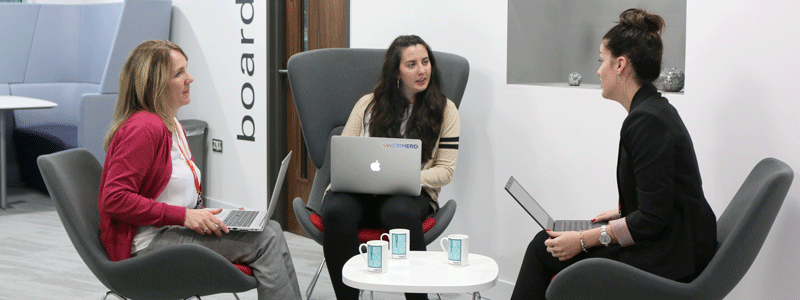Advice for Women Pursuing a Career in Technology
I was amazed at this statistic from 81% of respondents from Ivanti’s Women in Tech survey, when asked what advice they would give to women starting a career in tech:
- Know your worth.
A huge number of women obviously felt they’d missed out in their early careers, or maybe the newspaper reports on pay salary gaps in acting and the media world have bought this to the forefront. From those reports, there seems to be huge differences in pay, but in tech and most organisations, companies have pay scales that reflect grade, performance, job length, experience and not gender.
Experience is an interesting one, as a man is more likely to pump up his career experiences in a job interview than a woman, as highlighted in a recent Ivanti blog post by Julia Bell, Co-Founder and COO of Juriba.
For sure, there are gender differences in female and male personalities. Men are less successful at multitasking but are better at talking about their work achievements, for example.
The other answers for this question are sound advice for females starting their tech career:
- Get as much training as possible and become a lifelong learner.
I think this can apply to either gender as tech changes so quickly that it's important you stay ahead of the curve. But when it comes to women, the more you feel enabled in your role, the more it probably gives you confidence and relates back to the first answer of “know your worth”.
- Communicate well within the team.
Nearly 62% of respondents gave this advice.
- Try to stand out.
Standing out was advice given by 15% respondents. While it is sound advice, if women feel less confident in this area, it can be hard to shine through. Which leads us to...
- Find a mentor.
51% of respondents advise mentorship. Mentoring isn’t just about the hard skills needed for a tech role; it can also be about coaching in soft skills.
Sue McGuire, Ivanti’s global VP of field marketing, advises women in business not to start their conversation or presentation with an apology, e.g., "Apologies, I didn’t have enough time to prepare my slides." Whereas a man would probably bluff his way through his presentation deck. This is great advice from Sue, because as soon as your start to apologise, it already makes you feel less confident. More self-belief!
- Be thick-skinned.
Just over 50% advised to “be thick-skinned”. This can apply to both genders, especially when you’re new to an organisation. More seasoned professionals can forget what it’s like to be a newbie. It can be tough keep asking the same questions and not getting the answers you need. You might feel embarrassed or upset when you’re rebuffed, but keep pushing and you’ll get there.
- Be yourself.
And finally, some of our other comments reflected just "be yourself”. I remember starting a new job a few years ago and day two was an off-site meeting. I was the only female in this leadership meeting. At dinner that night, the wine buffs were perusing the huge wine list, comparing notes, and finally ordered several bottles of wines I’d never heard of. As the waiter moved around the table pouring the wine, he came to my glass, and I just asked for a glass of NZ Sauvignon Blanc. There was a look of horror on my colleagues' faces that I’d prefer something different to the chosen wine.
Morale of the story is to be yourself. It's ok to have a different choice or opinion.
What makes a great team? For me, it’s having the diversity of people and skills. Everyone brings something different to the table and contributes to the team’s success.

